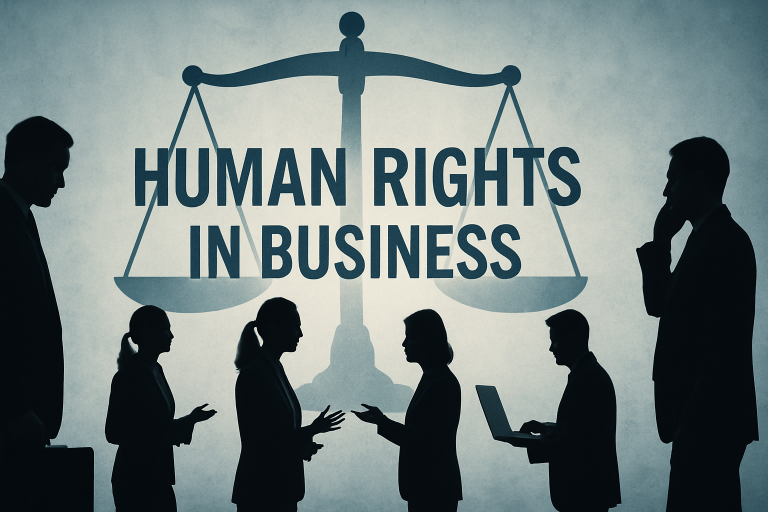by: Rinawati Eko PL*
In today’s increasingly transparent world, how a company treats people is no longer an internal matter. From boardrooms and factory floors to villages surrounding land concessions, business operations are no longer solely about producing efficiently to deliver high-quality products. They are value-driven endeavours—where value means not just economic gain, but also social responsibility, seen as a risk by investors and a growing expectation from the global community.
In this new reality, business success is not merely determined by speed or efficiency, but by integrity.
Unfortunately, integrity often remains a lofty concept, difficult to translate into real action. Take social responsibility, for example. Many companies include commitments to human rights in their codes of conduct or sustainability reports. Yet upon closer inspection, these commitments often exist only on paper. Cases abound: contract workers employed without adequate protection, Indigenous communities excluded from land use planning, or supply chain vendors disregarding decent labour standards. A gap persists between commitment and implementation, and that’s where integrity loses its meaning.
What’s needed is a more concrete and systematic approach to ensure that human rights commitments are fully integrated into a company’s operational management. Over the past few years, human rights and business advocates have promoted Human Rights Due Diligence (HRDD) as a structured process to identify, prevent, and address actual or potential human rights impacts throughout a company’s value chain, along with mechanisms for remedy when harm occurs. HRDD is a strategic pillar of the UN Guiding Principles on Business and Human Rights, and is now being adopted into national regulations and international sustainability standards. Companies such as The Coca-Cola Company and PT Bumi Resources have begun using HRDD as a benchmark for responsible business.
When implemented contextually and consistently, HRDD is more than a tool to prevent abuse. It becomes a strategic mechanism for internal monitoring, ensuring transparency, and crafting rights-based policies. Simply put, HRDD is a critical component of visionary risk management—not just a compliance tool, but a foundation for long-term business sustainability.
Ironically, human rights violations in the business world often happen in silence, without media attention or public outcry. Yet the consequences can be devastating and long-lasting: consumer boycotts, terminated contracts, legal battles, and, most critically, a loss of trust from investors and the wider public.
It’s time for companies to treat HRDD as a strategic investment, not an administrative burden.
By placing human rights at the heart of decision-making, businesses not only protect their reputations but also build strong, ethical foundations that are resilient in the face of change and relevant for the future.
*The author is a staff member at CRU Indonesia
This article is part of a media partnership program with tanahair.net
CRU Indonesia is organising a three-day in-person training workshop on “Implementing Human Rights Due Diligence in Corporate Practices”, on June 24–26, 2025, in Bandung.
Register here: https://forms.gle/Vum8wxUWqjBCuxGf7
Contact: Agwina Dieta – agwinadieta@cruindonesia.org | 0811 1111 447















